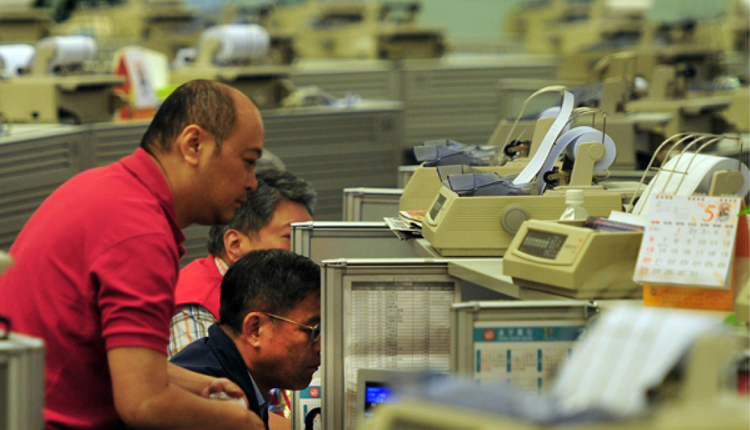Asian stocks edged higher on Monday, with weekend developments in U.S.-China talks, regarded as positive by analysts on the whole, in the spotlight.
Japan’s Nikkei 225 edged up by 0.37 percent on the first trading day of the week. The Topix dipped in and out of negative territory and was last flat, with declines seen in insurers and steelmakers while machinery sector stocks climbed.
Over in South Korea, the Kospi reversed early losses to advance 0.37 percent.
Greater China markets got a lift following positive trade developments at the weekend. Hong Kong’s Hang Seng Index advanced 1.26 percent amid broad-based gains, with utilities and technology leading the climb higher.
On the mainland, the Shanghai composite edged up by 0.77 percent and the Shenzhen composite added 1.12 percent. Logistics firms were given a boost as U.S.-China trade concerns abated, with Cosco Shipping Holdings jumping 8.91 percent.
Stocks Down Under bucked the trend, with the S&P/ASX 200 slipping 0.05 percent as materials and financials weighed.
On the whole, MSCI’s index of shares in Asia Pacific excluding Japan edged higher by 0.46 percent in Asia morning trade.
Developments in the U.S.-China trade relationship were digested by investors as markets opened for trade this week. In particular, immediate fears of a trade war were likely put to rest after U.S. Secretary Steven Mnuchin said Sunday that the countries were “putting the trade war on hold” as they worked out an agreement.
Both countries said they had agreed to “substantially reduce” the U.S. trade deficit with China in a joint statement on Saturday. According to the statement, China would significantly increase its purchases of U.S. goods and services, although it remained unclear how much that would amount to.
“Overall, markets should view this positively at the open this week, but will continue to be attentive to further developments,” ANZ analysts said in a morning note.
Although Mnuchin’s pronouncement was an incremental positive, there were also other moving parts at play in markets, said Jonathan Garner, chief Asia and emerging markets equity strategist at Morgan Stanley.
Higher oil prices were “negative for most of Asia, which is a large oil importer … We also have a situation where monetary policy continues to tighten in the U.S. and China simultaneously, and that’s an issue that’s certainly causing pressure on valuations, particularly in equities,” Garner told CNBC’s “Squawk Box.”
U.S. stock index futures, meanwhile, were higher on Monday following Mnuchin’s comments, with the implied open for the Dow Jones industrial average more than 200 points higher during Asia morning trade. S&P 500 and Nasdaq futures also pointed to gains.
Stock indexes stateside had closed mostly lower on Friday as investors digested trade-related headlines ahead of the joint statement issued at the weekend.
The declines also came as U.S. Treasury yields rose to multiyear highs last week, although they eased on Friday. The yield on the benchmark 10-year U.S. Treasury note last stood at 3.065 percent after surpassing 3.1 percent for the first time in around seven years last week.
The dollar index, which tracks the U.S. currency against its peers, stood at 93.858, compared to levels around the 93.7 handle seen on Friday. Against the yen, the greenback traded at 111.23 at 12:13 p.m. HK/SIN.
The Australian dollar traded at $0.7520, a touch above last Friday’s close of $0.7511, with the improvement in investor sentiment seen to be buoying the currency.
In individual movers, shares of LG Electronics slipped 0.31 percent following news on Sunday that the chairman of LG Group, Koo Bon-moo, had passed away.
Koo’s son is expected to be nominated to the company’s board as part of succession plans, Reuters said. Other LG affiliates traded lower, with LG Display declining 0.31 percent and LG Chem down 1.74 percent.
Source: CNBC
